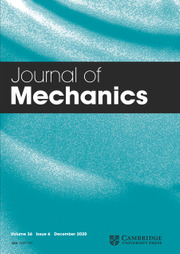No CrossRef data available.
Article contents
Analysis of the Mechanic Behavior and Rutting of Asphalt Concrete Using a Sand Model
Published online by Cambridge University Press: 05 May 2011
Abstract
The stress-strain relationship of the sand and asphalt concrete materials is one of the most important research subjects in the past, and many conctitutive laws for these materials have been proposed in the last two decades. In this study, the Vermeer plasticity model is modified and used to predict the behavior of the sand and asphalt concrete materials under different stress path conditions. The results show that the predictions and test results agree well under different stress path conditions. However, the orignal Vermeer model can not predict the stress-strain behavior of the asphalt concrete. Finally, the modified Vermeer plasticity model is incorporated with the pavement rutting model to predict the rut depth of pavement structure under traffic loadings.
Information
- Type
- Articles
- Information
- Copyright
- Copyright © The Society of Theoretical and Applied Mechanics, R.O.C. 1999

